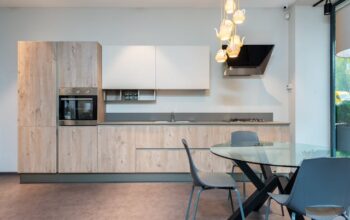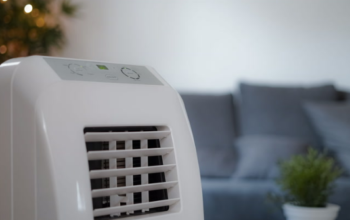As for many homeowners, the headaches that come with a wet basement are never welcomed. There is a little possibility available for a certain level of contentment that comes with having a waterproof basement. You probably know that the area needs to stay dry well if you keep your belongings in the basement. A wet basement can also pose a threat to your health, home and property. Any sort of moisture is harmful and can damage anything in the basement down below.
If you are searching for a waterproofing company to get a satisfactory service, then you should go online and search for basement waterproofing companies. Now, let’s explore the 5 effective tips to waterproof your basement with solid ways.
Where is the Water Coming From?
Rain isn’t the only thing to consider when it comes to water problems in the basement. While rainwater and snowmelt are common reasons for flooding in the basement, there are also the possibilities of subsurface seeping, humidity, condensation, poor ventilation, or a leaking pipe.
Keep a good eye on your basement, if you notice funny smell, mysterious cracks, or general dampness in your basement, you need to find out the source of the issue before it spreads.
Now let’s get down to how to keep your Basement dry.
-
Insulate Your Cold Water Pipes
Insulating the hot water pipes can help you conserve energy by preventing the water heater from overworking. But Insulating your cold water pipes is also a smart thing to do. These insulation can prevent your cold water pipes from freezing when the temperature is at its lowest. And it also limits the formation of condensation forming along with them when the humidity level is high. The most humid place in your house is likely to be your basement and the cold water pipes will start to sweat if the level of the heat increases. This sustained dampness in an enclosed space presents suitable conditions for mold colonies to increase.
-
Improve Ventilation and Humidity
Excessive humidity level can be one of the major reasons for mold growth in your basement. Using a dehumidifier or installing an exhaust fan is a great idea to control increasing levels of humidity. You need to make sure that your clothes dryer is properly venting air outside. Circulate some fresh air through an open window if there’s one.
-
Waterproof Your Basement Walls and Floors
It is highly recommended that you take some steps to waterproof your walls and floors if you are using the basement as a furnished living space. Using a waterproof sealant on concrete walls and floors to prevent water from coming through. You can put a thick coat of water-resistant paint on the walls to stop gathering condensation. If cracks start to appear in your basement floor, it means a serious structural problem. However, most of these cracks don’t require serious foundation repair. If the cracks are heaving, that requires professional attention, as there could be cracks in the foundation. Applying a waterproof sealant to cracked surfaces can help prevent this from happening. Hydraulic cement will seal up cracks and prevent leaks from coming through.
-
Is Landscaping Damaging Your Foundation?
It’s going to be a problem if your landscaping is causing water to accumulate you foundation.
You want that water to be directed away by a downward slope. Maybe your home was built without this being taken into notice, or this slope has changed over time to a less useful angle.
Keep an eye on your foundation wall when it rains heavily. If water isn’t being effectively directed away, you need to get some simple landscaping done quickly. Fill in areas that are pulling water down toward your basement. Also, surrounding your foundation with gravel or small rocks is a strong measure to absorb unwanted moisture.
-
Install a Sump Pump And Keep Your Basement Dry
One of the highly effective ways to keep the basement dry is to install a sump pump. This is another measure you need to focus on if you use the basement as a living space. You need to eliminate any possibility of flooding no matter for what purpose you are using your basement. A sump pump will minimize the risk of mod growth, flooding or any kind of structural damage.



